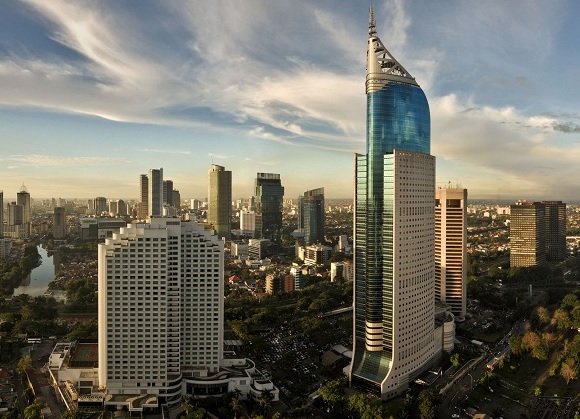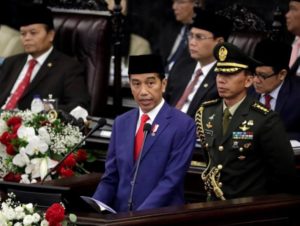
Indonesian economy will continue to improve, as the external environment and domestic situation are positive, the World Bank says.
Jakarta, MINA – Indonesia’s economic growth is forecast to reach 5.3 percent in 2018, higher than the 2017 projection of 5.1 percent, supported by improving household consumption, investments, and exports.
The economy will continue to improve, as external environment and domestic situation are positive,” World Bank Lead Economist for Indonesia, Frederico Gil Sander, was quoted by Antara News as stating here on Thursday.
Sander noted that recovery in the growth of household consumption in the third quarter of 2017 will be higher in the next period, buoyed by strong commodity prices, low inflation, stable rupiah, good labor supply, and reduced borrowing costs.
In addition, investment growth will be supported by the inflow of foreign capital and the high absorption of government capital expenditure that can provide infrastructure facilities to invite investments from business players in the region.
Also Read: Saudi Arabia Wins Bid to Host World Expo 2030
“Exports that increased throughout 2017, mainly of raw and processed commodities, such as coal and palm oil, helped to boost growth, as the exports of other manufacturing goods, such as textiles, footwear, and electrical goods, also recorded a high growth,” Sander emphasized.
Nevertheless, risks exist that can disrupt the projected economic growth in 2018, such as household consumption that is slower than expected and commodity prices that have not fully recovered and hence will affect the export performance.
Such risks stem from external factors, such as the normalization of monetary policy, heated geopolitical situation, and weakening of commodity prices and economic growth in China, which has been Indonesia’s trading partner.
“A sharper-than-expected drop in the prices of commodities, such as coal, can significantly weaken trade and exert pressure on the balance of payments and tax revenues and hamper growth,” Sander noted.
Also Read: 148 Products from Indonesia Promoted at Sarawat Superstore Jeddah
Sander explained that other risks arise from the domestic side, such as the year of politics 2018, the slow reform momentum, adjustments in energy prices, and tax revenue that is below expectations.
“On the other hand, a sharp rise in oil prices could lead to a combination of inflation and a decrease in the consumer’s purchasing power as well as a greater burden of subsidies for the entire public sector,” Sander added. (T/RS5/RS1)
Mi’raj Islamic News Agency (MI
Also Read: Packaging Industry Supports Halal Ecosystem

































 Mina Indonesia
Mina Indonesia Mina Arabic
Mina Arabic